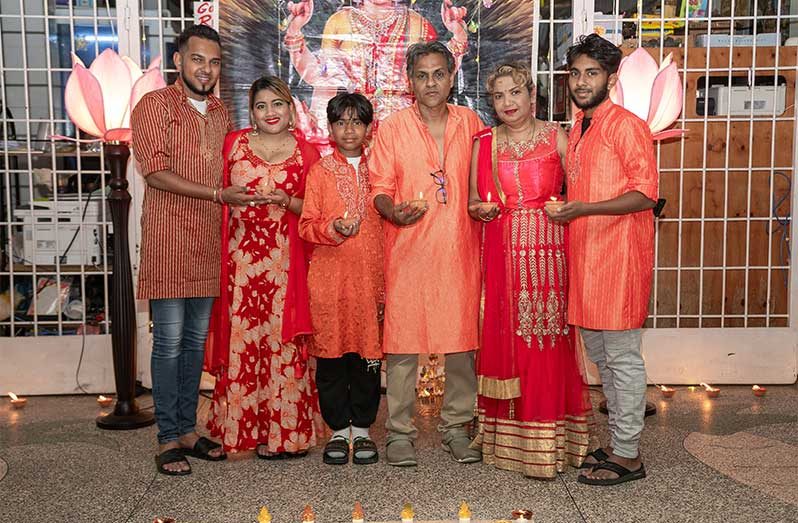FROM Campbellville to Cummings Lodge, homes across Guyana shimmered with the warm glow of thousands of deeyas on Diwali night, as families came together to celebrate light, love, and new beginnings.
The air was rich with the scent of sweet rice, incense, and marigolds, but even more powerful was the feeling of togetherness that illuminated the evening.
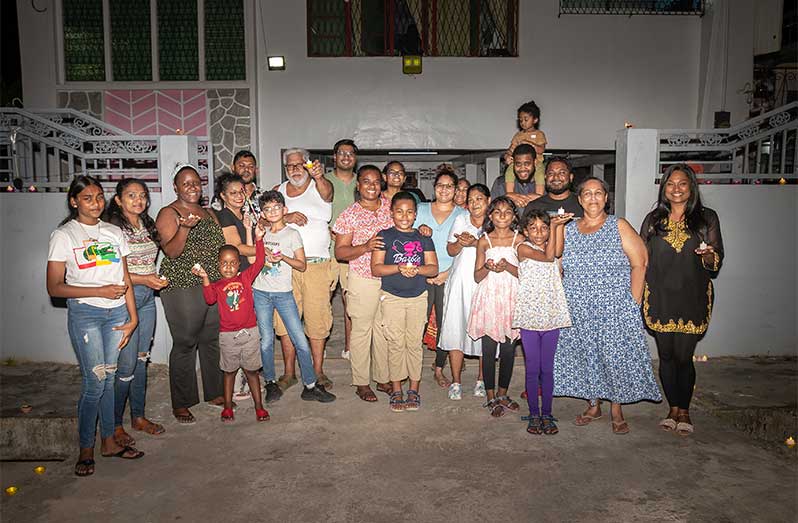
This year’s observance of Diwali, the Hindu Festival of Lights, once again transformed communities into radiant displays of devotion and unity. Across the capital and beyond, families reflected, reconnected, and rejoiced, proving that the true glow of Diwali lies as much in the hearts of people as in the lamps they light.
A FESTIVAL THAT UNITES ALL
For Indian national Dilip Aradhya, this Diwali in Guyana was unlike any he had ever experienced. Celebrating his first Diwali here, he told the Guyana Chronicle that the atmosphere was extraordinary.
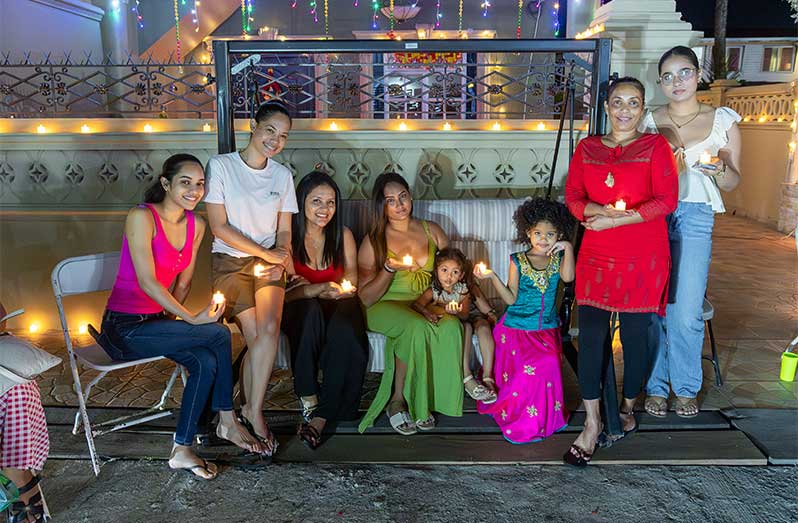
“Being from India, I thought we celebrated better,” he said with a smile. “But coming here, I understood that Guyanese celebrate Diwali better. Everyone is involved; the whole country comes out together.”
He explained that while decorations and fireworks add to the festive beauty, it is the spirit of national unity that truly captures the meaning of the festival. “What I liked most is that Diwali here is celebrated as a whole; not just by a home, but by the entire country,” he said. “In India, it’s about how many crackers you burst, and sharing sweets with neighbours, but here, the whole of Guyana comes out for the motorcade. I thought it was just Diwali, but for Guyana, it’s something else entirely.”
That sense of shared celebration is exactly what Mitra Tiwari treasures most. Having celebrated Diwali in Prashad Nagar since 1987, she says the festival has become a family legacy.
“As the years go by, it’s escalated,” she shared. “All the children, nephews, nieces, everybody comes over; the whole family.”
For the Tiwaris, preparations start a week in advance. “We clean every nook and cranny,” she explained with a laugh. “You get up early to make sweet rice, and then there’s all-day cooking: Seven curries, rice, pholourie, potato balls, and sweets that start from the night before.”
Her home, like many others, was alive with laughter and the sparkle of diyas; a symbol of light triumphing over darkness, and family over distance.
LIGHT IN TIMES OF LOSS
But for others, Diwali also carries a more reflective tone. In Campbellville, Ajay Singh and his family marked the festival with quiet remembrance.
“Since my brother passed, we didn’t celebrate last year,” Ajay shared softly. “We did not do rangoli or light-up. But the year’s gone, so we can celebrate now. We’re still not really in the mood. We didn’t light up much; just around here. Normally, we light up the whole house.”
Even so, he found comfort in the collective brightness of the community. “Everyone comes together. My favourite Diwali memory was when I was young; my cousin and I used to make bombs. One time it blew up right in front of us,” he said with a chuckle. “It was all fun.”
THE LIGHT WITHIN
For many worshippers, Diwali is as much a spiritual journey as it is a cultural celebration. At a temple in Cummings Lodge, Hari Kirtan explained that the essence of Diwali lies in self-reflection.
“I was at the temple earlier. We had a sweet sale — not just selling sweets, but sacred food to the public. At the temple, we offer a sacred fire to the Lord, symbolizing that we offer our soul to Him,” Kirtan said.
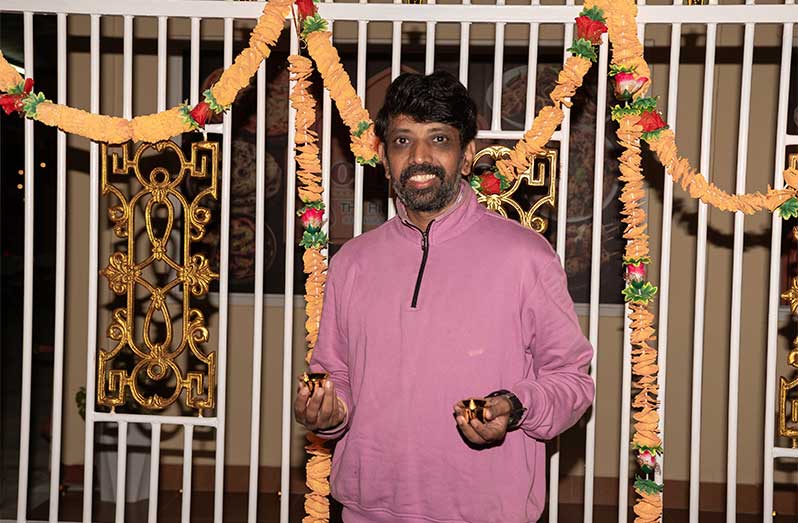
For him, the deeper meaning of Diwali lies in introspection. “Lighting deeyas is wonderful, but what’s more important is lighting that light within our hearts. We must reflect on where we are with our spiritual practice — not just spiritually, but in our daily lives. My message for Diwali would be: While lighting our fireworks and deeyas, keep in mind the true meaning of Diwali.”
PASSING THE TORCH
Among younger Guyanese, the spirit of Diwali continues to burn bright. Sheena Ramkarran, who grew up in Campbell Avenue, says the festival remains one of her family’s most cherished traditions.
“I’ve lived here my whole life; 23 years,” she said. “Over the years, Diwali was more vibrant. Now it’s calmer, but people still celebrate. Growing up, my cousins and I would come out here in the park; it used to be full of kids. Everyone participated. We made a lot of noise. It was great.”
She hopes that future generations will hold onto the festival’s unifying message. “I just hope everybody has a joyful Diwali,” she said. “Come together and have a joyous time. This celebration is all about light and bringing happiness to one another.”
As the final deeyas flickered into the night, one message shone through every street and every home — that Diwali, in Guyana, is not just a festival for Hindus, but a celebration of unity, reflection, and shared humanity.
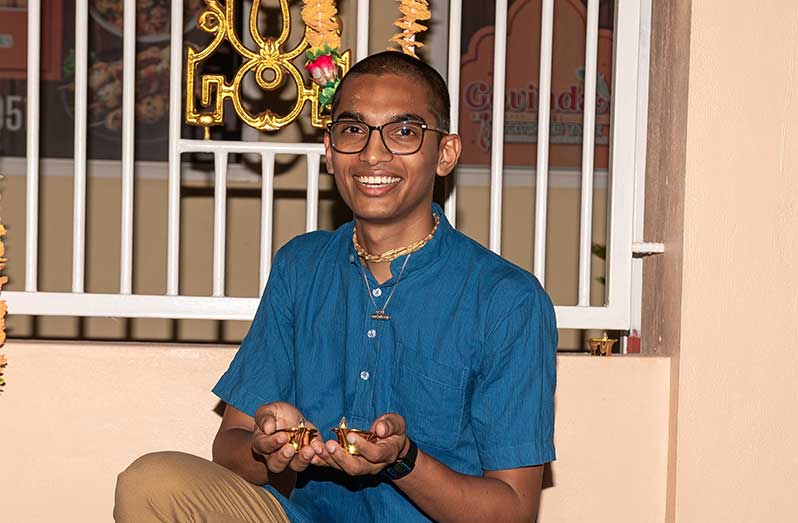



.jpg)




